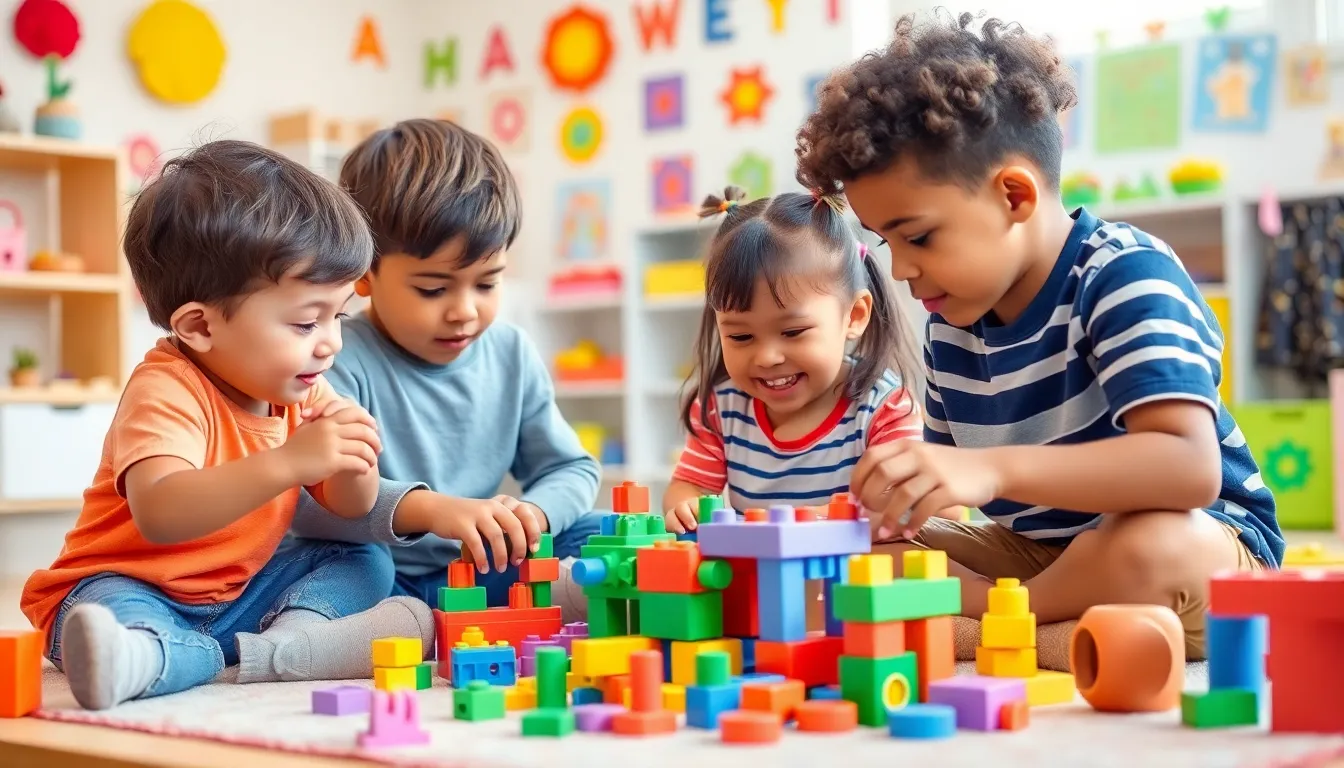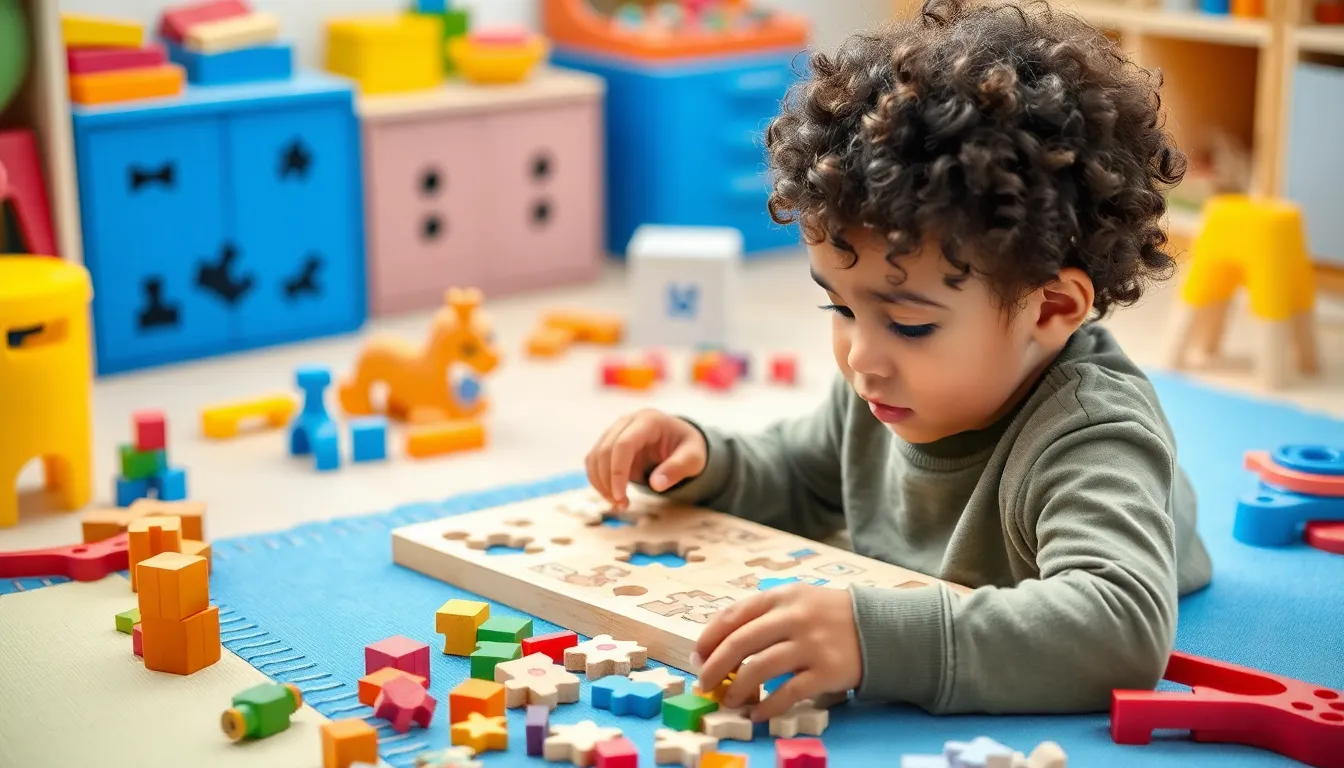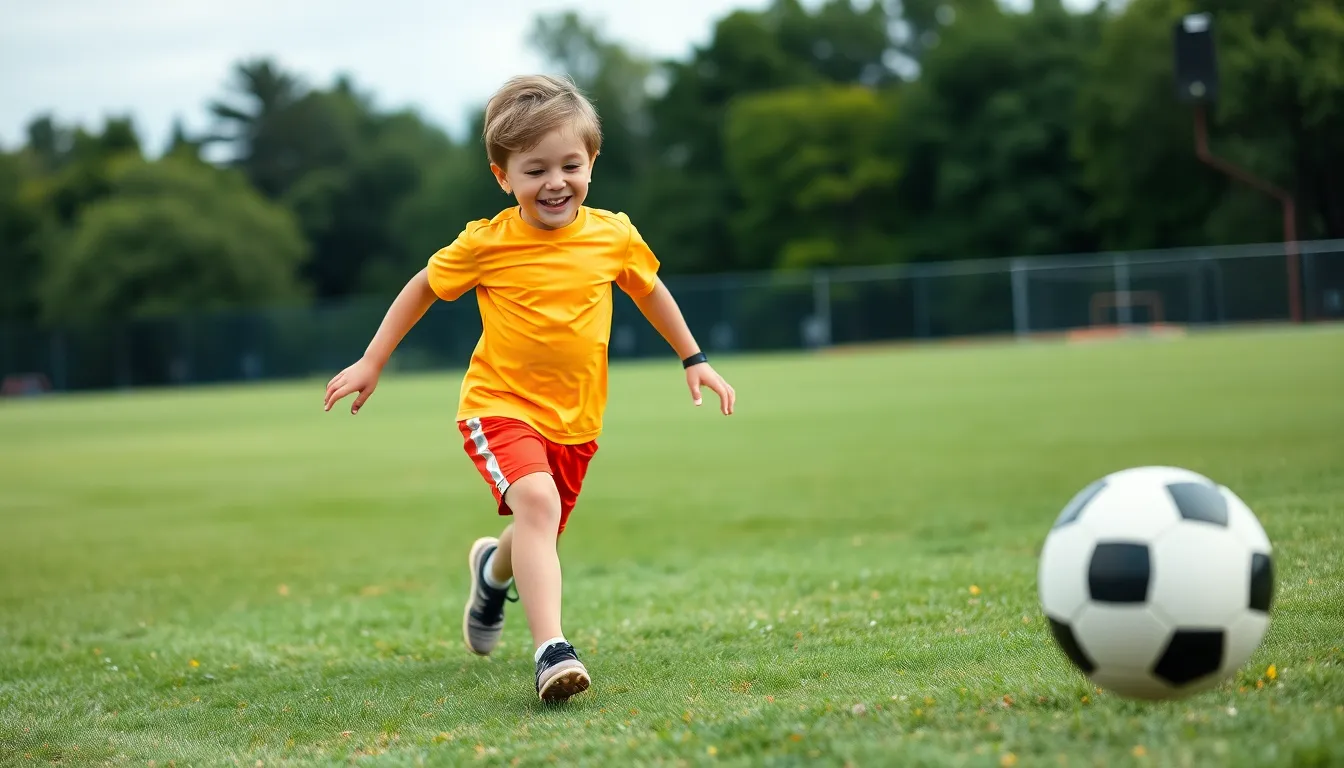In a world where screen time often reigns supreme, problem-solving toys are like a breath of fresh air. These clever little gadgets not only entertain but also challenge the mind, turning playtime into a brain-boosting adventure. Who knew a simple puzzle could rival a superhero in the battle for attention?
Table of Contents
ToggleOverview of Problem-Solving Toys
Problem-solving toys serve as essential tools for cognitive development in children. They encourage critical thinking and creativity through engaging activities. Puzzles, building sets, and logic games challenge young minds to devise solutions. Such toys stimulate various cognitive skills, including problem recognition, planning, and execution.
Research shows that problem-solving toys significantly contribute to a child’s learning experience. According to experts, engaging with these toys can enhance fine motor skills and concentration. In comparison to electronic screens, these hands-on activities demand more mental effort, ensuring deeper learning. Studies indicate that children who regularly interact with problem-solving toys tend to show improved academic performance.
Without a doubt, diversity exists among problem-solving toys, catering to different age levels and preferences. For instance, simple wooden puzzles can effectively engage toddlers, while complex brain teasers attract older children. Educational games, such as chess or strategy board games, introduce concepts of competition and decision-making.
Parents increasingly recognize the long-term benefits of problem-solving toys. They often choose these over traditional entertainment options, promoting an environment of active learning. When children play with toys designed for problem-solving, they experience a balance between fun and intellectual challenge. This balance enhances overall development, ensuring that playtime remains productive and enriching.
Benefits of Problem-Solving Toys

Problem-solving toys provide numerous advantages for children, especially in cognitive development and motor skills enhancement.
Cognitive Development
Cognitive development through problem-solving toys occurs as children tackle challenges. Engaging with puzzles or logic games sharpens critical thinking skills. Children learn to recognize problems and devise strategies for solutions. These toys foster creativity, encouraging new ideas and different approaches. Research shows that regular play with these toys can lead to improved reasoning abilities. Additionally, engaging in such activities often translates to better academic performance. Fostering a love for learning starts early with these mental challenges; they transform playtime into valuable educational experiences.
Motor Skills Enhancement
Motor skills enhancement is another significant benefit of problem-solving toys. Playing with building sets and puzzles requires fine motor coordination and dexterity. Children develop hand-eye coordination as they manipulate pieces and fit them together. Activities involving these toys can lead to improved concentration and focus over time. Enhanced motor skills play a crucial role in everyday tasks, from writing to self-care. Parents investing in these toys contribute to holistic development, ensuring children progress well in both academics and everyday life. Engaging in hands-on play promotes an active, healthy lifestyle that supports overall well-being.
Types of Problem-Solving Toys
Problem-solving toys come in various forms, each designed to stimulate cognitive development in unique ways.
Puzzles
Puzzles serve as an excellent introduction to problem-solving. These toys come in numerous styles, from jigsaw puzzles to 3D puzzles, catering to different age groups. Engaging with puzzles enhances recognition of patterns and boosts attention to detail. Children learn to strategize while assembling pieces, which strengthens critical thinking skills. Notably, research shows that regular puzzle-solving increases memory retention and spatial reasoning abilities.
Building Sets
Building sets encourage creativity while teaching engineering concepts. These toys typically include blocks, interlocking pieces, or magnetic tiles. Kids explore structural balance and design principles as they create various structures. The open-ended nature of building sets inspires imagination and innovative thinking. Furthermore, studies indicate that children who play with building sets demonstrate improved problem-solving skills and better understanding of cause and effect.
Strategy Games
Strategy games challenge the mind and promote tactical thinking. Board games and card games in this category require players to develop methods to outsmart opponents. Engaging with these games cultivates decision-making abilities and enhances social skills through cooperative play. Moreover, evidence suggests that participation in strategy games can lead to better performance in academics by bolstering analytical skills. Each game provides a distinct problem-solving scenario that sharpens logical reasoning and encourages perseverance in finding solutions.
Choosing the Right Problem-Solving Toy
Selecting the appropriate problem-solving toy requires careful consideration of age and skill level. Parents can ensure a child’s experience is both beneficial and enjoyable by evaluating specific characteristics.
Age Appropriateness
Age-appropriate toys cater to different developmental stages. Selecting a toy designed for a particular age group enhances engagement. For instance, toddlers benefit from simple, colorful puzzles that improve fine motor skills. Older children find greater enjoyment and challenges in complex brain teasers or advanced building sets. Research supports that toys tailored to age not only maintain interest but also promote cognitive growth. Many parents must assess their child’s interests and abilities while choosing a toy that aligns with these developmental milestones.
Skill Level
Skill level significantly influences toy selection. Beginners might thrive with easy puzzles that stimulate problem recognition and planning skills. In contrast, advanced players may require intricate strategy games that demand critical thinking and tactical strategies. Ensuring the toy matches the child’s skill level promotes confidence and encourages continued engagement. Many educational experts recommend gradual progression to effectively challenge children as they develop. Matching toys with skills fosters a balanced approach to learning and enhances overall cognitive development.
Problem-solving toys play a vital role in shaping children’s cognitive abilities in today’s fast-paced world. By offering engaging challenges they promote critical thinking creativity and essential motor skills. Parents who prioritize these toys contribute to their children’s holistic development and academic success.
With a diverse range of options available there’s a perfect fit for every child’s age and skill level. Whether it’s a simple puzzle or a complex strategy game these toys not only entertain but also equip young minds with the tools needed for future challenges. Embracing problem-solving toys ensures that playtime remains both enjoyable and enriching fostering a love for learning that lasts a lifetime.



